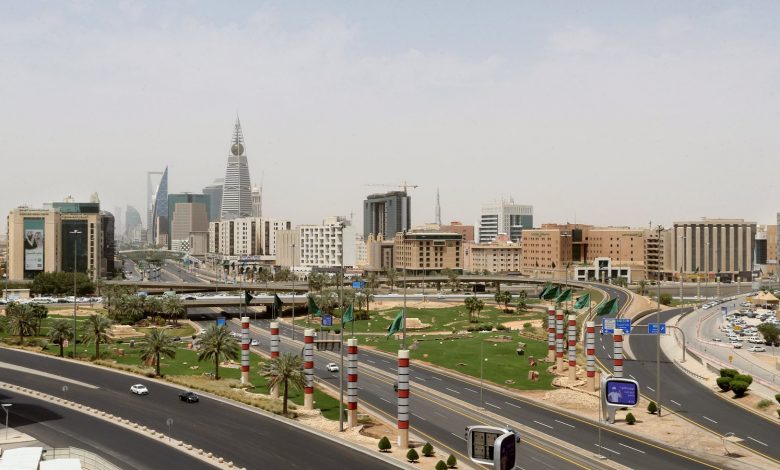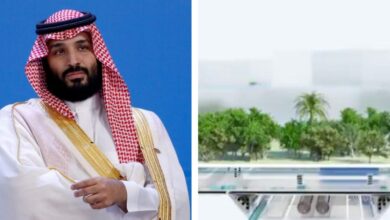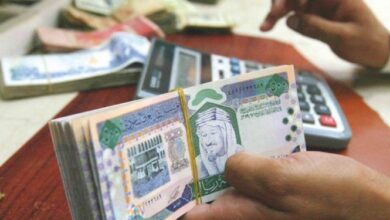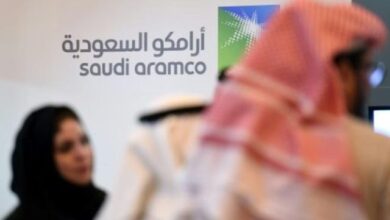Major Saudi companies face risks of collapse due to declining growth

The Financial Times expected that major Saudi companies are on the verge of collapse due to the recent growth decline.
The newspaper said that companies owned by Saudi families are offering their shares to the public, hoping to help them attract foreign investors and increase liquidity.
The newspaper pointed to the increasing pressure on Saudi companies, struggling with rising costs and declining growth in recent years.
It explained that offering shares to the public is a step that was met with hesitation by many family-run companies, which are afraid to open their books or respond to external shareholders due to the risks of internal conflicts and the collapse of some companies.
According to the newspaper, the private sector in Saudi Arabia is driven by family businesses. Many large family businesses have collapsed over the past ten years, which have employed hundreds or thousands of employees.
This comes as an American newspaper revealed that the plans of Crown Prince Mohammed bin Salman were subjected to a blow by foreign companies that, in turn, escaped from the inferno of the reality of Saudi Arabia and the weak investment intention in it.
The Wall Street Journal said that foreign companies are reducing their operations and canceling their investment plans in Saudi Arabia, which represents a severe blow to the plans of bin Salman, who pledged in 2016 to build new industries away from the Kingdom’s dependence on oil.
The newspaper reported facts about the tension in American business companies in Saudi Arabia. The companies dealt a blow to bin Salman’s plans because the Saudi government disturbed it when it ordered the transfer of its regional headquarters to Riyadh or the loss of government contracts.
According to the newspaper, “foreign investors are increasingly concerned about their physical safety, especially since some of those arrested in bin Salman’s campaigns related to the alleged fight against corruption were foreigners.”
A foreign businessman told the journalist that he was detained and tortured after publicly saying that some labour laws were unfair in Saudi Arabia.
US building contractor Bechtel sent contractors back to their home countries after not collecting more than $1 billion in unpaid bills.
Apple’s plans to open a flagship store in the centre of Riyadh also faded, while the Triple Five group backed off from building a multi-billion dollar complex in the Kingdom.
In the same context, Uber, General Electric and several other foreign companies in the Kingdom were subjectehjd to sudden tax fees amounting to tens of millions of dollars.
Gilead Sciences, Bristol-Myers Squibb and other drug companies have also complained for years that their intellectual property rights have been stolen.
Movie Theater Company AMC has ceded most of the control to its partner in the Saudi government. The situation is even worse for small businesses and entrepreneurs for whom minor issues can turn into a painful ordeal.
The newspaper emphasized that bin Salman has failed to remove obstacles to foreign investment, as Saudi Arabia remains a difficult place to do business, with a slow bureaucracy, an outdated legal system, and a poor human rights record.
According to the newspaper, bin Salman is trying to address the liquidity crisis in the Kingdom by imposing retroactive taxes on dozens of large foreign companies operating in the Kingdom.
And the US embassy in Riyadh has previously confirmed that the spread of corruption in Saudi Arabia, involving senior princes and officials of the Al Saud family regime, represents a major obstacle to attracting foreign investment.
And the American Bloomberg Agency reported that the Washington embassy in Riyadh warned the Saudi authorities that its tax system and corruption and fraud might push foreign investments away.
The agency reported that the US embassy criticized the Saudi tax authorities and warned that disputes with foreign companies risk discouraging investment in the country.
According to Bloomberg, the US embassy in Riyadh sent a strongly worded letter to the Saudi Tax Authority, in which it was stated that tax officials in the Kingdom have “insufficient resources” and need better training to deal with “complex issues.”
The US embassy stated that the experience of American companies in the Kingdom was disappointing and could lead to the deterioration of Saudi Arabia’s image as an attractive place for investment and would put the country in a dangerous competitive field.
She highlighted that many multinational companies operating in Saudi Arabia suffer from tax problems, as there is a lack of transparency, consistency and legal procedures, compared to what I expected from other countries that have invested in them.
The “Government Defense Integrity” organization has previously highlighted the spread of corruption in Saudi institutions and the growth of this phenomenon during the reign of King Salman and his son, the Crown Prince.
The organization said that Saudi Arabia “suffers from serious indicators of corruption in its defence institutions, such as the lack of transparency and oversight in operations, financial affairs and procurement.”
The organization was alerted to the recent corruption scandals by officials of the security and military agencies in Saudi Arabia.
She indicated that Saudi Arabia is trying to cover up these scandals, which became famous by announcing the arrest of some officials, officers and adults.
But the international organization confirmed that corruption is widespread in the Saudi defence institutions largely and comprehensively.
She noted that Saudi Arabia loses vast sums of money due to these indicators through bribery, abuse of influence and embezzlement.
Arrests against corruption continue to be announced in Saudi Arabia without providing any details that convince citizens in the Kingdom, which raises suspicions that the campaign is limited to propaganda.
Saudi observers and activists highlight that Mohammed bin Salman deliberately promotes continuous anti-corruption campaigns in order to cover up his practices and the massive corruption unit during his reign.





